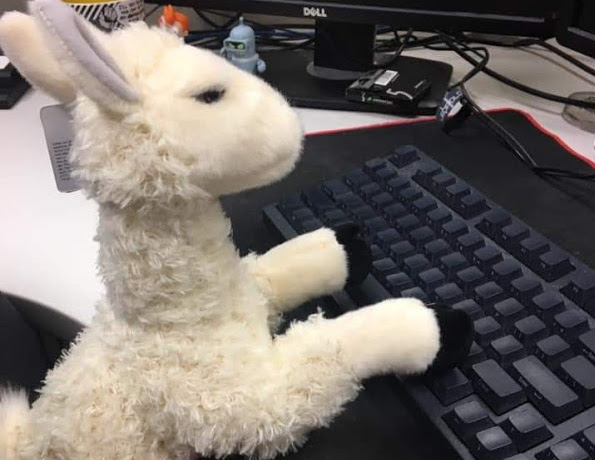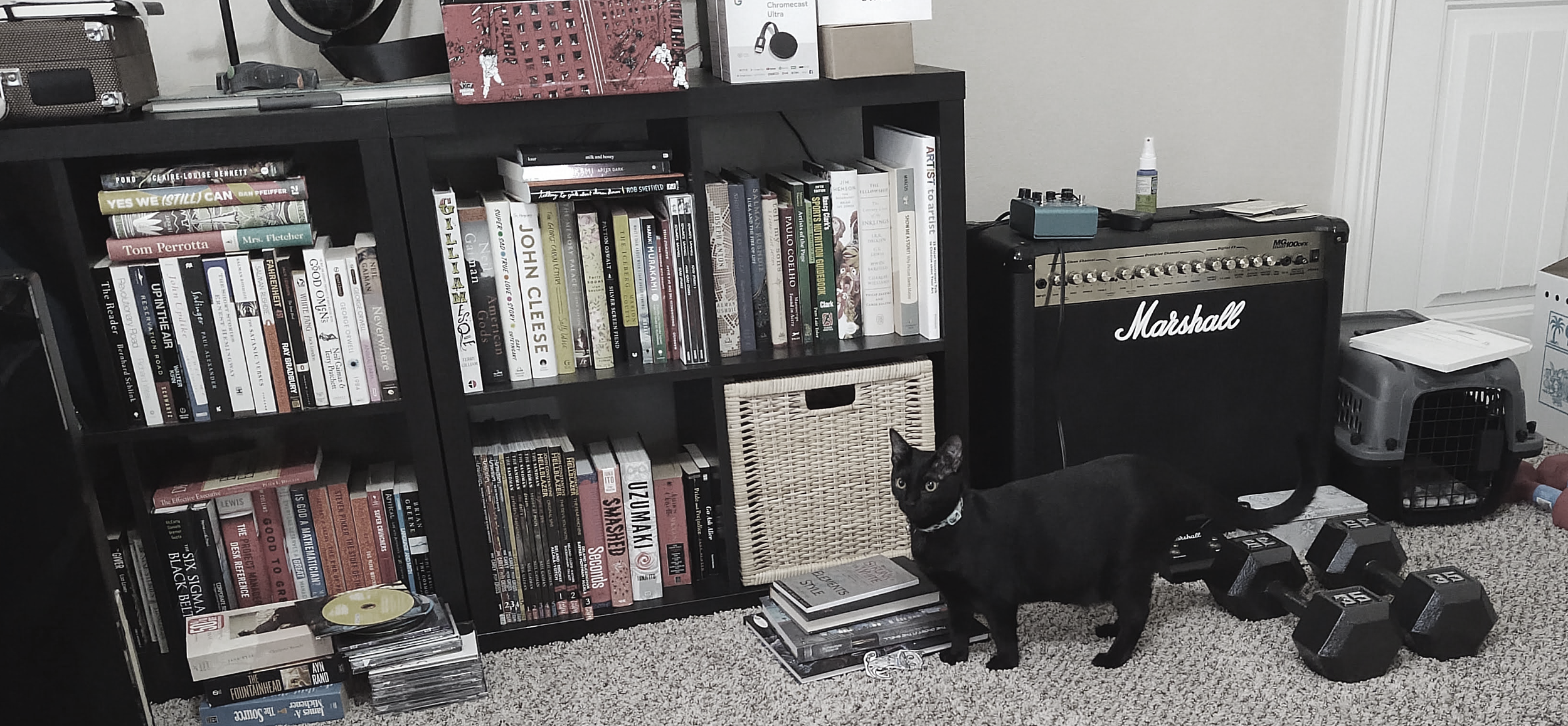
RE: The House of Hades By: Rick Riordan
A Book that I Really Love
From: Travis
August 26, 2020
The House of Hades is the best Percy Jackson book - fight me in real life.
(Or, at least, it's the best one I've read so far - still fight me in real life.)
For sure, I would never have read a Percy Jackson book were it not for my son. Having gone through all of Harry Potter with him over the course of months and months of bedtime readings, we picked up a couple of other series to try on: some that he didn't really get (A Wrinkle in Time); some he was underwhelmed by (Artemis Fowl); one, in particular, he really liked (surprise) The Lightning Thief.
Like, he loved them so much we even went and saw the musical.
We even got Camp Half Blood Buttons.
Dedication.
So we read all five books of the Percy Jackson and the Olympians series and, you know, for the most part they were decent enough. I was pretty sure I could see the Harry Potter framework that Rick Riordan was trying to hang the adventures of a trio of misfit-yet-the-center-of-THE-big-prophecy demigods onto; parallels between magical Houses and the godly Cabins, Quidditch and Capture the Flag. Mostly, those first five books were episodic - divided up into years at camp the same way Mr Potter's books were divided up by the year at school ... although, as an aside, disappearing from summer camp for an oracle-assigned quest does seem a bit more natural (if you can say that about mythic quests) than having to keep up with magical homework and school sports and having all the big twists always happen about the same time as course finals.
Although I didn't really dig them the same way my son did, I enjoyed the adventures across the country; bumping into various mythological personages in mildly ironic, or comedic situations. For the most part, though the irony didn't land for my son, he seemed interested enough when, for example, Auntie M started turning people to stone - engaged even if he had no idea Medusa could even do that.
My one real gripe about the whole thing, was that Percy Jackson never seemed to be in much peril. I know, I know, that's not the point for these kinds of books -- but as the characters hoped from situation to situation, from one deadly mythological monster to another, there never seemed to be any kind of question whether Percy would figure something out. Ok, some people did get killed here and there (and I guess, his mom gets killed by a minotaur pretty early on in the first book...) but what I mean is; our heroes would come up against a wall and a page or two later have already figured out how to knock it down ... and in this case, not because of something they had learned in Defense Against the Dark Arts class earlier on. I mean, by the time the series is wrapping up, the Son of Poseidon is literally invincible, cutting through hordes of monsters and (basically) single handedly responsible for all of the Pantheon of gods' survival.
When we finished out the first five books, we decided to give the next series, Heroes of Olympus, a go. At first, I was really interested to see what Mr Riordan would do with a whole new generation of characters. (I think I talked about this in the podcast too, but) I imagined these stories would be a couple years down the road, maybe with Percy and Annabeth as older camp counselors, characters that are involved but only to serve as connective tissue between the two series ... but nope, it's just the next summer... basically everything is the same, except Percy is missing, the Roman aspects of the gods are in play, and there's a new prophecy to be dealt with.
So, I was mildly disappointed, but we dove in all the same and you know what? we enjoyed the second series maybe a little bit more than the first.
I was surprised that the Prophecy of Seven (demigod heroes) didn't just refer to the same people we'd already been adventuring with in the last series -- introducing new demigods instead; each with some kind of secret backstory, unique power sets, preteen romantic interests -- you know, all the interesting stuff you want in your demigod slash X-Men story lines. Having the books switch to a third person narrative and jumping between multiple characters was a nice change from only having Percy deliver the story. Letting us in on the thoughts of someone else for once and giving other people a chance to come through with the heroics from time to time, instead of PJ's usual constant power creep.
With all these new characters to introduce and develop, two parallel storylines going on while The Seven are gathering up, there is a lot of ground that gets covered early on in the series and a lot of the things that kind of bugged me in the first series crop back up. Random encounters with monsters overcome in a couple minutes (sometimes thanks to an item they didn't realize they had), unbeatable enemies beaten without too much of an effort (or due to the clever use of boundary lines), almost instant travel across the country on super fast horses, you know the drill.
Anyway, all of that is why the House of Hades was such a welcome change to me. Having read seven other books at this point, progressing steadily from set piece to set piece to set piece; from challenge to challenge with not that much of narrative impact, House of Hades was the point were things finally felt 'Hard' for our heroes, where there were finally consequences felt from everything that came beforehand.
At the risk of spoiling it for you, Percy and Annabeth spend the book literally making their way through hell.
And that's the thing they do the whole book.
No zipping from New York to Las Vegas to Rome for a pizza date; no, they trudge from one terrible place to another, from a river of fire to a castle of darkness with a stop off in the oozing breeding ground of all monsters. There are still series of battles, but each one feels like it weighs on them more and more, that they are breaking down bit by bit, carrying wounds with them along the way. For the first time they seem worn out, stressed and having trouble dealing with the emotion and exhaustion.
They meet characters that Percy killed in earlier books, people that he used or misused or just stabbed with his celestial bronze sword/pen who are less than pleased to see him again. They wade through a cloud of curses that his enemies placed on him with their dying breaths. They weigh the consequences and morality of having essentially crippled and tricked a prior enemy, abandoning him, and now reaping the benefits of his misfortune.
And your mileage may vary here, but the big bad guys they come up against in actual hell actually seem pretty serious. Instead of vampire ladies with snake legs and grocery store name tags, they meet the Mother of all darkness, or a rogue Giant cursed to battle a dragon to the death every day, or the swirling void of the Underworld himself personified.
Meanwhile -- up in the land of the living, Percy's other compatriots are dealing with the fallout of their usual leaders being unavailable, struggling to define and redefine themselves in the absence. There is personal interspection, deepening of demi-godly skillsets, solidification of romantic interests (such as there are), sacrificing personal interests for the good of the group (in one case, mercy killings), and in one surprisingly moving (and personally unexpected) scene, a battle with the God of Love that can only be won by someone admitting to themselves that they've been harboring homosexual romantic feelings for another boy.
So, yes, House of Hades is Percy Jackson's Empire Strikes Back. The dark, impactful inflection point between youthful rebellious swashbuckling and cure teddy bear alien gorilla warfare.
We have since finished out the last book in the second series which was pretty good too, but not nearly are surprising as this one... and we've started on the Trials of Apollo, which, yes apparently takes place about 6 months later... but at least showed the good restraint of waiting a couple chapters before bringing Percy back into things. We'll see how it goes.
Now... I wouldn't exactly recommend that you sit down and read the other 7 books in order to enjoy this one as fully as I did ... but if you find yourself similarly looking for a series that will keep your not-too-young ones entertained for several books once you've collected and destroyed all of the horcruxes, that will offer them both surface levels of run/jump/stab entertainment, some not-overly-deep introspection, while sneaking in some learning about Greek/roman mythology as they read along, I will say you could be much worse than these.
(Just maybe avoid the movies)




